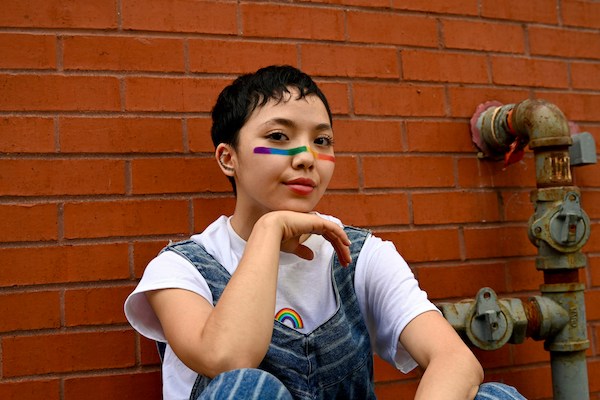The LGBTQ+ community has unique needs and because it is often misunderstood, a lot of work remains to be done to serve them better. If you want to make a difference and serve LGBTQ+ youth in particular, having the right degree is the best way to do so. The following degree options are great for people passionate about working with LGBTQ+ youth.
Bachelor’s Degree in Social Work
A bachelor’s degree in social work opens up a lot of opportunities and helps you cover a lot of the areas where LGBTQ+ youth need help. A social worker can offer some counseling services and help young people who are trying to understand their sexual orientations and identities. A bachelor’s degree in social work teaches you case management so that you can follow your clients as you work with them.
Bachelor’s Degree in Psychology
Psychology is concerned with behaviors and the mind. The LGBTQ+ community has unique psychological needs, and this is why psychologists and counselors are in such high demand in this community. A Bachelor’s degree in Psychology degree will teach you different frameworks that will help you understand LGBTQ+ youth. Many universities also teach the history of the LGBTQ movement and different approaches to different treatments, LGBTQ+ mental issues, and psychotherapy.
There are different psychology degrees depending on the university you enroll at. A degree in clinical psychology is quite common, as is a Christian psychology degree that provides a Christian-centric teaching model that prepares you for different psychology professional roles.
Degrees in Public Relations and Development
Degrees in public relations and development are perfect for people who would like to form organizations that create awareness of and advocate for LGBTQ+ youth. These degrees will teach you how to be an effective communicator, develop donor relationships, come up with fundraising strategies, and how to advocate for LGBTQ+ youth in both digital and traditional platforms.
Law
When you have a degree in law, you will be taught the basics of law in the first year with many universities allowing a bit of flexibility during the second and third years. Focusing on human and civil rights is the perfect option if you would like to work with the LGBTQ+ community.
A degree in law gives you the tools and knowledge you need to create equitable environments and advance conversations around equal rights. This degree is flexible enough and allows you to work for the government or open up a private practice if you so wish.
Human Sexuality Degrees
Human sexuality degrees allow you to explore topics around how we view sexuality, sexual diversity, and the relationship between sex and love. Human sexuality degrees are important if you want to gain a deeper understanding of human sexuality and how it is affected by gender identity and sexual orientation.
Degree in LGBT Studies
Although relatively new, this degree option is becoming very popular for those looking to work with the LGBTQ+ community. LGBT studies combines history, psychology, sociology, politics, and literature to give students the skills and knowledge required to be the voices needed in the larger discussion about LGBTQ+ equality and rights.
A degree in LGBT studies is often very involved and combines many different areas of studies deliberately to ensure graduates can think about LGBTQ+ issues differently. It also gives graduates the knowledge to approach LGBTQ+ work from different angles and to come up with solutions by arming them with new ways of thinking.
Gender Studies
A degree in gender studies is often offered at the master’s level and helps students understand the LGBTQ+ movement from different sides by helping them understand the frameworks and ideologies behind the movement.
A degree in gender studies explores the movement in-depth and allows graduates to come up with data-driven explorations of where the LGBTQ+ movement stands and how it can be moved forward.
Nursing
Students who want to serve others often take degrees that help them do that. A degree in nursing is perfect because it shows you how to do this while allowing you to be yourself and show resilience and compassion. A degree in nursing is important for people who want to work with LGBTQ+ youth because our healthcare systems are designed with heterosexism in mind. Because of this, LGBTQ+ individuals often do not receive the level of care they need while keeping their unique needs in mind. Nurses sensitive to the needs of LGBTQ+ individuals are needed to make nursing more inclusive and more effective for LGBTQ individuals.
If you want to work with LGBTQ+ youth, you need a degree that helps you cater to their unique needs. In many cases, that would be a degree in social work, but degrees in law, psychology, and LGBTQ+ studies, among others, are all important.


